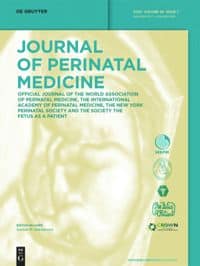COVID-19 and Preterm Births: How the Virus Affects Pregnancy
As Corona cases jumped in New York City, so did the number of premature births, a group of neonatologists find.
Although the birth rate in the US has decreased significantly during the pandemic, many people have still taken the time to start or grow their families. At the same time, there is worry about whether a COVID-19 infection could affect pregnancies and the (unborn) child.
We – a team of neonatologists at Flushing Hospital Medical Center – were wondering about the same thing while in the midst of the first COVID wave in New York City. So, we decided to take a closer look at our newborns as well as their mothers to find out if anything had changed.
And it did.
In fact, our center, located in Queens, New York City, started to see a change from March to June of 2020 in the number of babies born prematurely, meaning after less than 37 weeks of gestation. Their mothers displayed no other risk factors, except being COVID-19 positive at the time of delivery.
A Complicated Start to Life
Before the pandemic, we closely followed the national average for premature deliveries in the United States, which averaged around 10%. However, as soon as COVID came around, we saw that number in our center jump to 18.3%. Nearly all these mothers experienced a spontaneous onset of labor and delivered naturally.
On top of that, those infants, compared to others born just as premature but to a COVID-negative mother, experienced more complications, such as respiratory distress, suspected sepsis, jaundice, and trouble feeding.
In addition, and as expected, symptomatic mothers were more often the ones who delivered prematurely. Luckily, none of the infants born to COVID-19 positive mothers tested positive themselves.
Without a doubt, COVID-19 has turned our lives upside down in nearly every aspect, and the risk of having a baby prematurely is just one of many complications of the virus. We believe it would be interesting to see additional studies, especially on larger scales.
In the meanwhile, our center will continue to do what we have been doing for the past year and hope for better days to come – not just for our newborns.
Learn more in this related manuscript
[Title Image via Getty Images]
